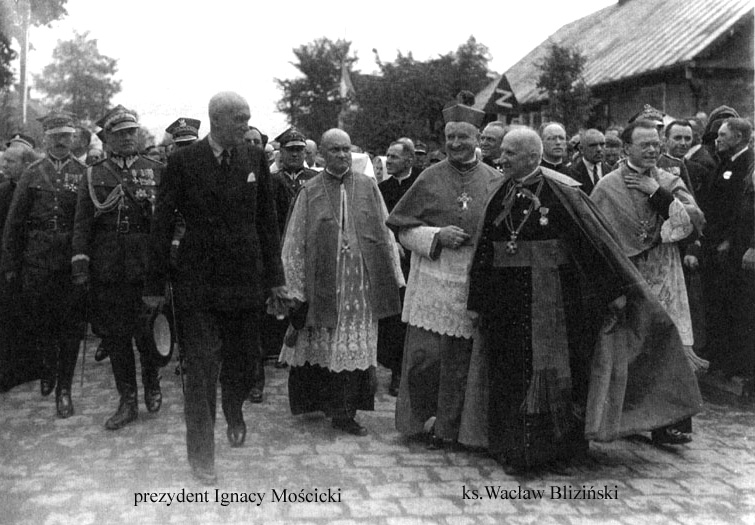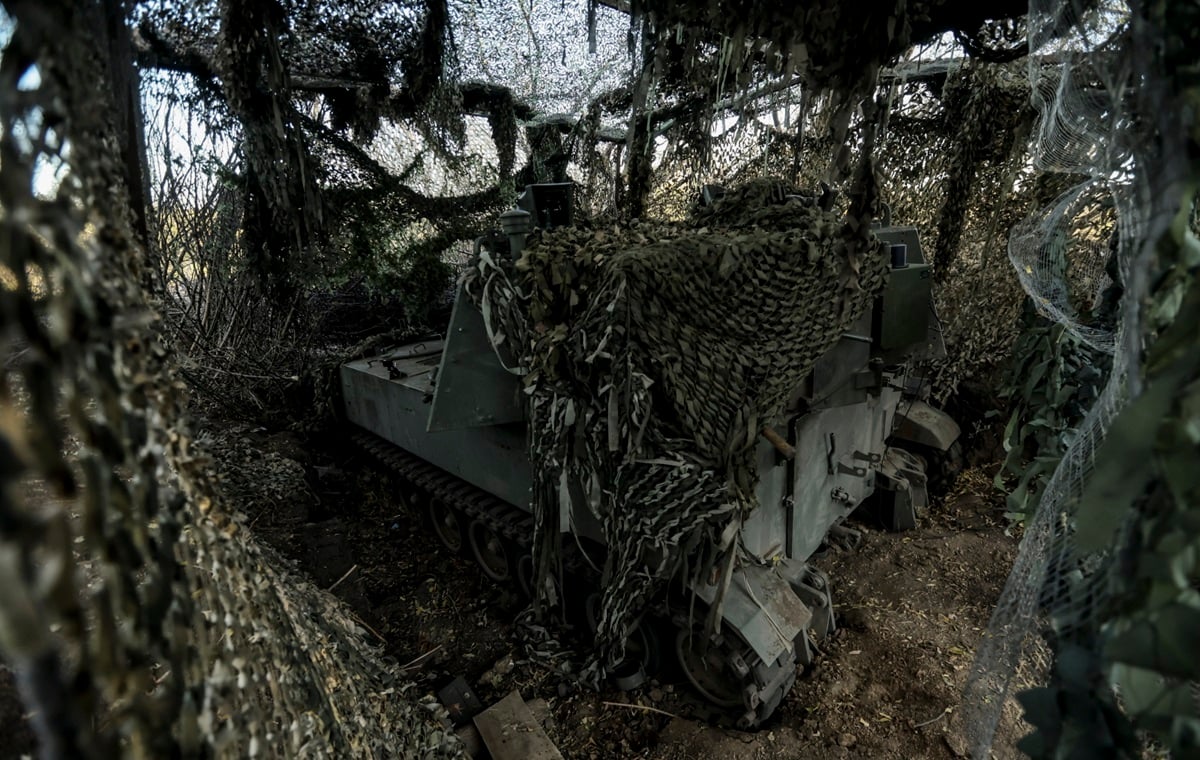First edition of the Congress of Fr. Monsignor Wacław Bliziński of the Korczak coat of arms will take place on September 28 and 29 in Lisków and Kalisz. This event was under the auspices of the figure of the parish priest who is still remembered today – a great social activist, author of many works addressed to the poor and helpless people of the Second Polish Republic. The Congressional presentation took place during a press conference co-hosted by the Catholic Information Agency.
This year marks the 100th anniversary of the adoption of the Law of the First Period by the Sejm of the Second Polish Republic which regulated legal issues related to social welfare from 1924 to 1991. The main initiator was Rev. Monsignor Wacław Bliziński, coat of arms Korczak. Due to his many years of practical experience in cooperative development and social work in the countryside, opposing Russification, this legendary priest was a universally recognized authority throughout the Second Polish Republic in implementing Catholic Social Teaching. However, Lisków, where Fr. Bliziński served as parish priest and is said to be the birthplace of Polish cooperatives.
In Lisków and Kalisz the first edition of the Congress will be held on 28 and 29 September. Monsignor Wacław Bliziński, coat of arms Korczak. This event will consist of two main debates and 14 thematic debates. It is also planned to sign a Congress Charter which is a declaration of desire to support a number of integrated activities for the development of cooperatives and helping others.
>>> “Faith’44” – IPN film about the role of priests in the Warsaw Uprising
Rev. Monsignor Dr. Sławomir Kęszka, a historian from Lisków and expert on the history of the Diocese of Włocławek and the Diocese of Kalisz, emphasized that although we live in different times with Fr. Wacław Bliziński, his figure and activities are very relevant today and can inspire. This is because people like Rev. Bliziński’s challenges facing the reborn Polish state after the split show contemporary society, above all, that it cannot give up in the face of an impossible situation.
– Rev. On the one hand, Wacław was a charismatic figure, he came from a landowning family that lost all its possessions after the January Uprising. Patriotic attitude, Marian devotion – this is why, as a priest serving in the Diocese of Kujawy and Kalisz (later Diocese of Włocławek, now Kalisz), he is remembered as a man who did not speak, but acted, that is, a man of action. He ended up in Lisków, a difficult community that did not want a young parish priest from the town, but he convinced them with his work and commitment and educated these people. Hence the Liskowo phenomenon involving the activation of local communities, although not without difficulties, especially at the beginning of its service – said the historian.
He also pointed out that in his daily work, Rev. Bliziński was helped by his dedicated social “service to God and the people” – in parishes, dioceses, state institutions, including openness to people of different views, which was visible in his activities in the legislative field in the interwar Sejm and among officials and politicians, however, in the end, the priest became discouraged.
Rev. Andrzej Antoni Klimek, parish priest. All Saints in Lisków informs that traces of the activities of Fr. The city’s Blizińskiego is still visible today, as is the city’s longest street named after Fr. Bliziński, the streets of his colleagues, a monument in honor of the priest and buildings built during the priest’s social work. Intangible traces are also very valuable, especially those in human memory. – Everyone has someone in their family who was their student, it still exists – he said, adding that, of course, currently inaugurated by Rev. Bliziński’s work does not have the ownership and legal structure it had before, because the war had ended, the time of communism had arrived, and today in independent Poland, institutions such as orphanages operate according to different rules than in wartime Poland.
– However, we want to continue this spirit, the approach of Rev. Bliziński, who produced pioneering activities: do not give up, use all possible structures. His disappointment with politics did not make him withdraw completely from all activities, but he focused his energy on areas where he believed he could do good, emphasized Rev. Klimek.
>>> Samaritan Sisters in the Warsaw Uprising. They died with prayers on their lips
Andrzej B. Piotrowicz, president of the Management Board of the Joint European Pomeranian Association, stated that figures such as Fr. Bliziński is now much needed not only by ordinary people, but should also be used as a role model for ulama. He also expressed his hope that the upcoming congress could make this figure known not only in Lisków and Kalisz Diocese, but also become a reference and inspiration for other dioceses. This event itself can raise the spirit of cooperative action and social service among young people in need.
The organizer of the first edition of the Congress was Rev. Monsignor Wacław Bliziński of Korczak’s coat of arms is the Common European Pomeranian Association, while the strategic partners of the Congress are the Kalisz Diocese and Kalisz University. President Stanisław Wojciechowski.
The honorary patronage of the Congress is held by: Bishop Damian Bryl, Bishop Kalisz; Marlena Maląg, Minister of Family and Social Policy; Ph.D. Przemysław Czarnek, Minister of Education and Science and Robert Telus, Minister of Agriculture and Rural Development.
More information about the Congress: www.xblizinski.pl
—
Wacław Bliziński was born in Warsaw on July 28, 1870. In the summer of 1887, he entered the Theological Seminary in Włocławek. While studying at the seminary, he was characterized by intelligence, entrepreneurship and a passion for risk, and these traits would also characterize him in his subsequent activities. He was ordained a priest in 1892 by Bishop. Zdzisław Kossowski.
After living in Włocławek for almost 6 years (among other things he was vicar of the cathedral there), he came to Lisków in 1899, where he became parish priest. The opinion and assessment of the new facility was less than favorable, as is evident from the following words: “The hole, as they say, is very neglected, the parishioners are known as money lovers and drunkards, and at the same time a very ignorant nation.”
Before 1900, Lisków had a very bad reputation in every way. This village is a village that has been neglected, both morally and economically. The new parish priest decided to confront the poverty of the population that existed everywhere. He assumed, among other things: economic institutions to gradually involve them in social work. In the activities of Rev. Education was very important for W. Bliziński, which is why he organized secret classes in the presbytery, and from 1905 he launched a network of orphanages – secret schools throughout the parish.
Another element of the parish priest’s program aimed at stimulating the rural population to social work and lifting them out of poverty and backwardness was the organization of the Savings Bank named in 1904. Franciszka Stefczyk, which not only taught the rural population how to save and obtain loans that necessary, but also – indirectly – contribute to agricultural progress and, therefore, improve their lives. Since 1921, the bank has continued to serve the residents of Lisków and surrounding towns as the People’s Bank.
The next step for Rev. Bliziński, whose main task was to contribute to the further economic development of the village and at the same time support cultural, educational and social institutions, was the creation of a cooperative organization. For this purpose, in 1902 the Industrial and Commercial Cooperative “Gospodarz” was created, uniting a number of factories and associations: Steam Dairy (founded in 1911), Bakery Cooperative (founded in 1913), Slaughterhouse, Brick Factory Cooperative and Concrete Factory (since 1919) and Grain Association (with its own steam mill near Koźminek) and Construction Association (both operating since 1919).
Other points of the program implemented by pastor Lisków were the fight against alcoholism (in which he was supported by the Brotherhood of Sobriety, founded in 1900) and the activation of rural communities by establishing a number of cultural and social organizations. In 1900 a parish choir and orchestra were founded, and in 1902 an amateur theater was founded which presented, among other things: the very popular nativity play.
An important role in the activities of Rev. Blizińskiego also functions as a social and educational institution where the younger generation receives education and acquires professions, including a weaving workshop and a toy-making workshop.
Another idea of the priest, aimed not only at deepening the faith among the residents of the parish, but also at involving housewives from Liskowo in social work, was to organize a Rosary Circle in 1910. In 1913, 11 other Circles were founded in parishes, each consisting of 15 people. In 1911, the Parish Women’s Association was founded, whose main task was to increase everyday knowledge through organizing readings, lectures and lectures.
Characteristically, most of the institutions founded by Rev. Bliziński in Lisków began in the first period of the work of the parish priest. Several factors contributed to its success. Firstly, deep, although traditional, beliefs took root among the parishioners, with a special veneration of the Virgin Mary, whose feast regulated almost all peasant work. Second, stay in the same group. Thirdly, poverty, helplessness and slavery, which contribute to the fact that every action, even one that brings small success, awakens a glimmer of hope, gives faith in the possibility of improving the situation and releases energy for further work.
The splendor of the activities of Rev. Bliziński’s work was interrupted by the outbreak of World War II. When German troops moved in, the priest was put on a list of people scheduled for arrest and had to leave his congregation behind. She hid for some time in Warsaw, and then, when she fell ill, the Servant Sisters in Częstochowa took care of her. He died there on 17 October 1944. In 1947, the priest’s body was taken to Lisków and buried in the local cemetery.
Have you read it? Support us!
We also operate thanks to your help. Support evangelistic activities in our editorial office!

“Reader. Future teen idol. Falls down a lot. Amateur communicator. Incurable student.”







